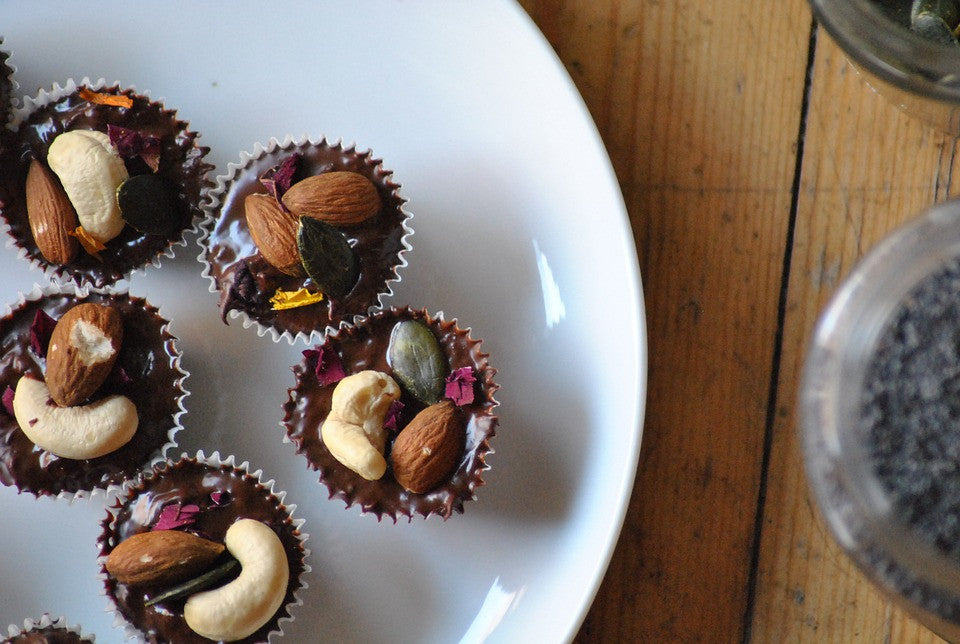Coconut oil is all the craze — but its nutritional and culinary benefits are anything but new or trendy.
This nutrient-dense and delicious oil is also incredibly versatile, making it a winning choice. Whether you're whipping up a batch of dark chocolate coconut cookies or a Thai-inspired stir-fry, every chef and home cook should have this oil on hand.
Benefits of Cooking with Coconut Oil
Before you invest in a jar of coconut oil, ask yourself — why would I choose this oil and how will it benefit my meals and, in this case, health?
There has been some controversy over the years, but based on scientific evidence, as well as some incredible case studies of inhabitants of Kitava, it's clear that coconut oil deserves a spot in our homes and kitchens.
Nutrition
For years, coconut oil got a bad rap based on its saturated fat content. For those aiming to watch their heart health, this high-fat oil was considered a little risky. Over the years, however, a number of studies have shown that this oil actually enhances your health — including neural and cardiovascular functions.
Within one study, published in the Indian Heart Journal, heart disease patients were assigned to cook with either sunflower oil or coconut oil. At the end of this study, despite the fact that coconut oil is around 90 percent saturated fat, there were no differences in relation to blood lipid levels (the amount of fat found in blood).
In addition, coconut oil:
- acts as an alternate source of energy for the brain
- prevents heart disease by impacting HDL, or "good" cholesterol, levels
- reduces inflammation and balances blood sugar
- boosts immune function
Versatility
If you're looking for vegan or dairy-free options while cooking and baking, coconut oil can act as the perfect alternative. Being both creamy and fragrant, it's an ideal ingredient to use within a wide range of dishes and cuisines.
The main benefits of cooking with coconut oil include, but are certainly not limited to:
- its relatively high smoke point
- its level of stability (does not turn rancid easily)
- its consistency and fat content, allowing it to replace butter, lard or shortening, providing a delicate flavor and enhanced health benefits
- its ability to complement a wide range of flavors, such as sweet potatoes, roasted vegetables, fish, eggs, chocolate and more.
What Can I Make with Coconut Oil?
From sweet to savory, many recipes complement this distinct flavor. Here are some of our top tips for when you want to experiment with this rich, healthy oil:
- Looking to jazz up your toast? Instead of butter, spread coconut oil on some dark rye, then top with sliced avocado, a poached egg and salsa. Get in there with your knife and fork!
- Why not slip a spoonful of quality coconut oil into your morning smoothie? It's a great flavor to complement dark leafy greens, low-glycemic fruit and Greek yogurt — it will even help balance your blood sugar. For those who reach for a cup of coffee in the morning instead, coconut oil complements a cup o' joe beautifully.
- Air-popped popcorn is the perfect snack — but the standard toppings of butter and salt can get boring. Instead, pop your kernels using coconut oil, then top with a dusting of your choice — cinnamon, cayenne, dark chocolate shavings or whatever else you fancy. Don't be afraid to get creative.
- Homemade chips sound tricky to make but can't be beat. Using a sharp knife, carefully slice potatoes or any root vegetables, drizzling with coconut oil before baking at 375 degrees F for around 15-20 minutes. Sprinkle with sea salt and rosemary.
- Whether you're looking for a quick snack or complementary breakfast ingredient, homemade granola can't be beat. Make your own creation, using coconut oil to bind and bake ingredients such as oats, seeds and nuts.
http://linkinghub.elsevier.com/retrieve/pii/S0019483215008299?via=sd&cc=y
https://sciencebasedmedicine.org/what-can-we-learn-from-the-kitavans
https://www.finicutlery.com/blogs/news/choosing-the-right-cooking-oil

